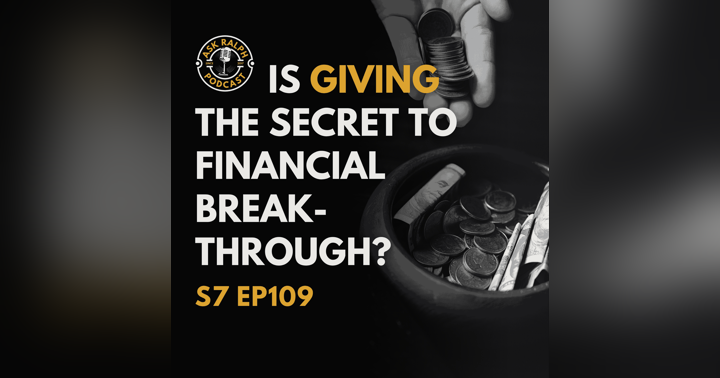How Can a Power of Attorney Safeguard Your Finances?

Should I have joint accounts with my children or rely on a Power of Attorney?
Managing your finances as you age can be complicated, especially when deciding whether to open a joint account with your children or set up a power of attorney. Financial expert Ralph Estep Jr. tackles this question in this episode of The Ask Ralph Podcast. Through real-life examples and practical advice, Ralph explains why sharing a bank account with your children might not be as safe as it seems and how a Power of Attorney Safeguard Your Finances.
Watch Here on Rumble
https://www.askralphpodcast.com/power-of-attorney/
Introduction: Joint Accounts vs. Power of Attorney
As people get older, many face the difficult decision of whether to give their adult children access to their bank accounts. While it may seem like an easy solution, Ralph Estep Jr. explains that it’s often fraught with risk. In this episode, Ralph dives deep into the pros and cons of joint accounts and power of attorney (POA), giving you all the information you need to make a smart, informed decision that safeguards your finances.
Listener’s Question: Should I Share My Bank Account with My Daughter?
One of Ralph’s listeners, Sharon, shares her dilemma. Her daughter has been asking to be added to Sharon’s bank account to make things easier “just in case something happens.” However, Sharon feels uneasy and unsure whether this is the best move. Ralph uses Sharon's situation to open up the conversation about the dangers of joint accounts and introduces an alternative—power of attorney.
A Cautionary Tale: Why You Should Think Twice Before Sharing a Bank Account
Ralph tells the heartbreaking story of Debra, a 68-year-old widow who made the mistake of opening a joint account with her daughter, Lisa. After a minor disagreement, Debra was shocked that Lisa had withdrawn her entire life savings, leaving her without a safety net. Although the situation seemed rare, Ralph points out that this is a common issue for many families, and joint accounts can leave you vulnerable to financial misuse—even by well-meaning loved ones.
What Is a Power of Attorney and How Does It Work?
A power of attorney (POA) offers a safer alternative to joint accounts. A POA allows someone you trust to manage your finances if you become incapacitated but doesn’t give them immediate access to your money. Unlike a joint account, a POA only activates under specific conditions that you define, offering more control and security. Ralph explains the two main types of POA:
- Durable Power of Attorney: This remains in effect even if you become incapacitated, allowing your appointed agent to manage your financial affairs like paying bills and making financial decisions on your behalf.
- Springing Power of Attorney: This only activates under certain conditions, such as if a doctor declares you incapacitated.
In Debra's case, a POA would have allowed her to retain control over her finances, while still ensuring her daughter could step in if necessary, without risking her entire savings.
Why a Power of Attorney Is Better than a Joint Account
Ralph lays out the advantages of a POA over a joint account, emphasizing why it’s the smarter choice for long-term financial security:
- Retain Control: A POA gives you control over your money until a specific condition occurs, unlike joint accounts where both parties have equal access at all times.
- Defined Conditions: You get to set the terms under which your agent can access your money, providing more protection.
- Avoid Family Conflicts: With a POA, you can prevent family disagreements and financial exploitation arising from joint accounts.
Key Steps to Setting Up a Power of Attorney
Ralph offers practical tips for setting up a power of attorney:
- Choose Wisely: Select an agent who is responsible, trustworthy, and has your best interests in mind.
- Be Specific: Clearly define what powers you’re granting and under what conditions they take effect.
- Review Regularly: Life changes, and so should your legal documents. Review your POA after significant events like marriages, births, or deaths.
- Open Communication: Talk to your family about your financial decisions to avoid misunderstandings and hurt feelings later.
Faith-Based Financial Wisdom
Ralph ties his financial advice to faith, quoting Proverbs 13:22, highlighting the importance of leaving an inheritance for future generations. He stresses that protecting your financial future is not selfish—it’s a smart, responsible choice. He encourages listeners to make these tough financial decisions now rather than waiting until it’s too late.
Conclusion: Why a Power of Attorney Protects You and Your Family
Ralph concludes by urging listeners to carefully consider the risks of joint accounts and explore the safer alternative of a power of attorney. A POA allows you to keep control of your finances while providing a secure way for your loved ones to step in if needed. A power of attorney gives you peace of mind, knowing your financial future is protected.
If you’re uncertain about what steps to take, Ralph encourages listeners to seek help and schedule a consultation to create a personalized financial plan.
What is your question that you would like to ask Ralph? Send Your Question here: https://justaskralph.com/
Join our email list and get a free copy of “Mastering Your Finances” at https://askralph.com/
Schedule an Appointment with Saggio Management Group, Inc.
https://app.acuityscheduling.com/schedule/fabfb9f2/appointment/8258839/calendar/2141336?appointmentTypeIds[]=8258839












